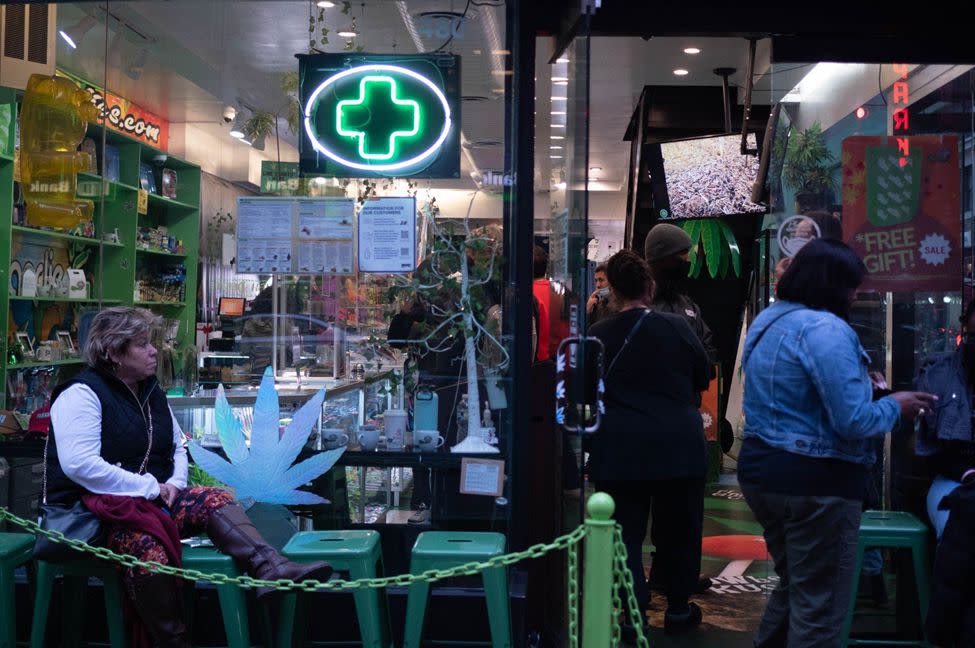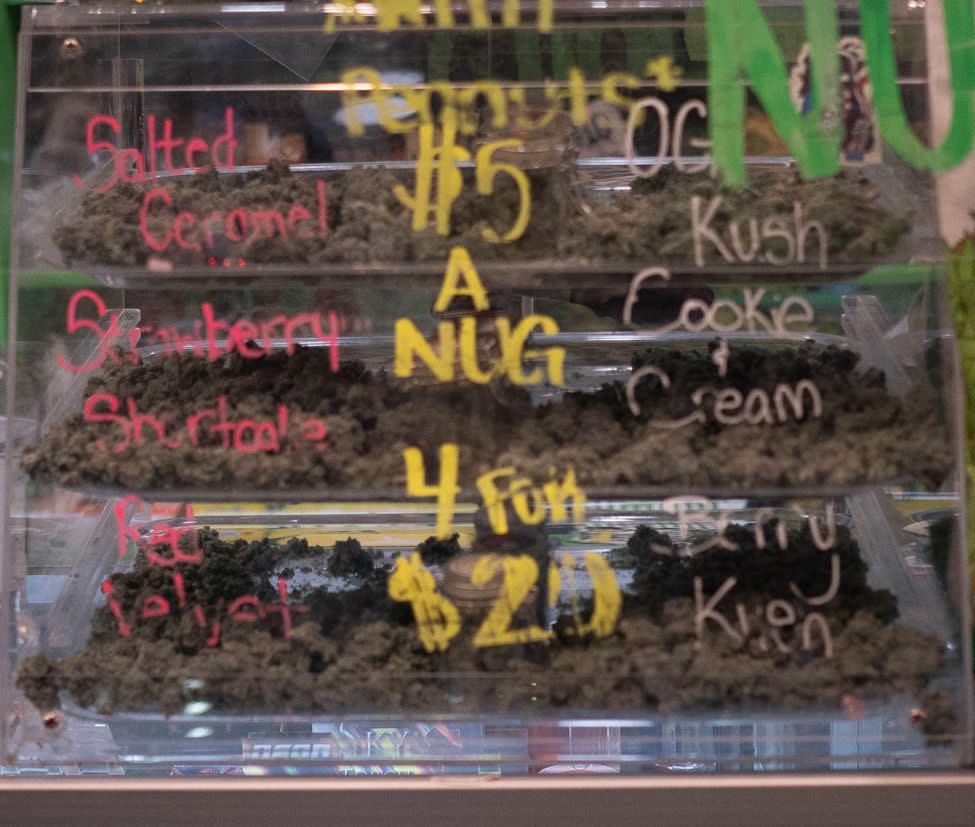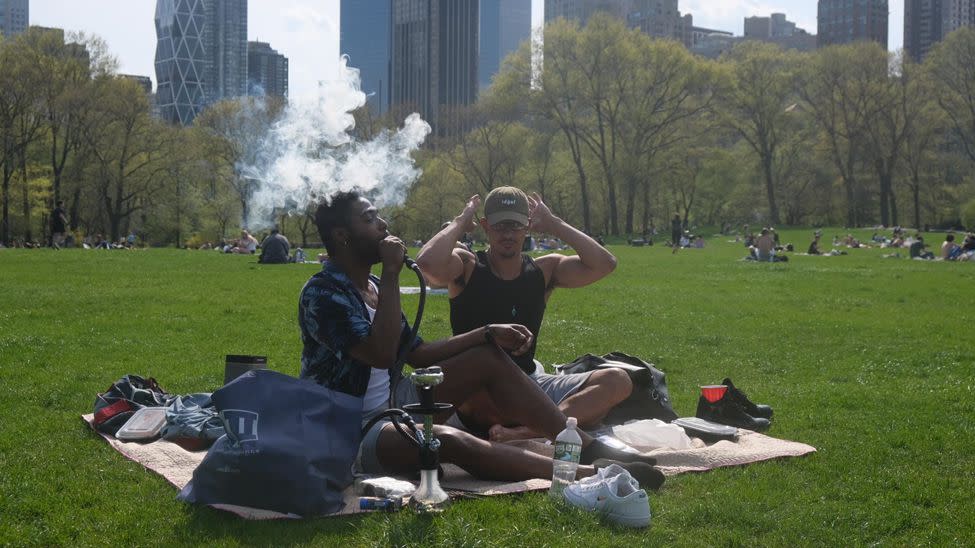Equity applicants express concern over NY’s emerging legal marijuana industry
Bronx businesswoman Nicole N’Diaye quickly realized New York’s 2014 legalization of medical cannabis offered few opportunities for entrepreneurs of color.
“It was almost $220,000 to get the license, which no minority I know could afford,” recalled N’Diaye, a Black woman who opted for a less competitive 2018 license for cultivating hemp and CBD.
The experience left her among the leery regarding the state’s recreational adult-use cannabis licensing application process, expected to launch in the next 18 months.
While the state intends to prioritize aspiring minority applicants, concerns remain over its delivery on that promise. One of the biggest: New York won’t go far enough to ensure those individuals most harmed by punitive drug laws — specifically in Black and Brown communities — will receive a fair shake.
“You can imagine how hot Harlem is and how many people — nonresidents, not-harmed individuals — are interested in opening up dispensaries and other businesses in my community, because they just view us as consumers,” said Regina Smith, executive director of the Harlem Business Alliance, who is Black and a lifelong Harlem resident.

“That’s what [they think] our role is supposed to be: consumers.”
There are also fears that New York could end up like other states dominated by big conglomerates, known as multistate operators. Experienced activists, legal experts and entrepreneurs from locales where recreational use is already implemented urged potential New York licensees to familiarize themselves with the current legislation and press elected officials to clarify its social equity component.
“The activism, lobbying and all the hard work that went into creating the MRTA [Marijuana Regulation & Taxation Act] and forcing former Gov. [Andrew] Cuomo to legalize could be all for naught if people stop paying attention during the implementation phase,” said Damian Fagon, venture director of the HOPE Program & Sustainable South Bronx.
Fagon, whose nonprofit helps participants find jobs, may apply for his own recreational use license.
In March, Cuomo signed the act legalizing adult-use cannabis for recreational purposes. Part of the process included creation of the Office of Cannabis Management and the Cannabis Control Board, which will be responsible for issuing all adult-use recreational licenses.
According to current guidelines, social equity applicants can include minorities, women, distressed farmers, service-disabled veterans — and residents of communities disproportionately affected by the government’s long and unsuccessful war on drugs.
From Smith’s perspective, Black and Brown communities punished for marijuana infractions at far higher rates than white neighborhoods should receive the majority of the licenses. One of the goals listed in the Marijuana Regulation & Taxation Act is awarding 50% of adult-use licenses to social equity applicants.
“New York has a head start by launching an entire program with equity in mind,” said Seattle-based Dr. Dominic Corva, the founder and executive director of the Center for the Study of Cannabis and Social Policy.

He noted New York has also earmarked 40% of tax revenue from recreational sales for community reinvestment programs.
In contrast, Los Angeles’ social equity program got off to a rocky start. And while New Jersey’s Cannabis Regulatory Committee purports to allocate 30% of its licenses to social equity applicants, the Garden State has yet to make any resources or guidance available through its Office of Diversity and Inclusion, while applications for cultivation, process manufacturing and lab testing licenses opened Dec. 15.
“I would give New Jersey a thumbs-down on how they’ve handled social equity,” said Philadelphia-based Jim White, head of the recreational cannabis consulting company Cannaspire. “I have asked the [Cannabis Regulatory Committee] numerous times on their webinars and things like that about when this office is going to be developed, and I don’t get an answer.”
A spokesman for the New York Office of Cannabis Management said the Empire State was already off to a fast start, with opportunities specifically targeted for communities “impacted by disproportionate policing” in the past.
“As we head into the new year, we will build on this success and continue to work as fast as possible while also making sure we do it the right way and create equitable opportunity where other states have failed,” said Freeman Klopott, director of communications for the Office of Cannabis Management .
While New York appears ahead of the curve in preemptively including its social equity clause, those who successfully obtain a license will still face hurdles before opening their doors.
Corva said aspiring business owners will need “highly specialized” individuals in their corner with “hard-won expertise” to help them navigate the bureaucratic system.
Like any new business owners, they’ll also need money — and lots of it. Securing loans and startup capital, an insurmountable barrier for many enterprising individuals, can be especially challenging for Black New Yorkers. About 3.5% of New York City businesses are Black-owned, while African-Americans make up 22% of the city’s population.
“Under [Mayors Rudy] Giuliani, [Mike] Bloomberg, de Blasio, [it] doesn’t seem to matter, but these are issues that we’ve been struggling with,” said Smith. “And it’s not that we don’t have intelligent, enterprising, hardworking people, but the challenges and obstacles are incredible.
“Just trying to access capital is a major hurdle.”
White cites his firsthand experience with clients who pay him $62,500 just to complete a licensing application on their behalf.

“You build a 30,000-square-foot growth facility and it costs about $2.5 million,” he said, noting banks don’t give loans to cannabis businesses because it’s federally illegal. “If people don’t have access to money, and you’re a social equity applicant, how the hell are you going to raise a million dollars?”
According to Fagon and N’Diaye, the finances could lead illegal cannabis sellers to forgo the emerging legal market.
“They’re the original entrepreneurs, the original pioneers,” Fagon said of the black market “legacy operators.”
Fagon believes one way to encourage legacy operators to embrace the legal industry is for the Office of Cannabis Management to provide an “easy, gliding path” into the licensing system.
“They often had to risk a lot ... [to] fight for their freedom to participate in a market that we now know there was nothing actually wrong with it, “ he said. “It was just racist policies that kept it criminalized.”
And if that doesn’t happen?
“The bigger the legal market gets, the higher the likelihood that New York State re-criminalizes the black market and starts arresting people because now they’re digging into the pockets of the state,” he warned.
Despite New York’s unclear implementation phase and wary tales from across the country, Black entrepreneurs and advocates remain resolute in seeking their piece of marijuana’s financial prize.
“We’ll see what happens,” said N’Diaye. “But I’m one of the pioneers in this industry, and I won’t stop.”
